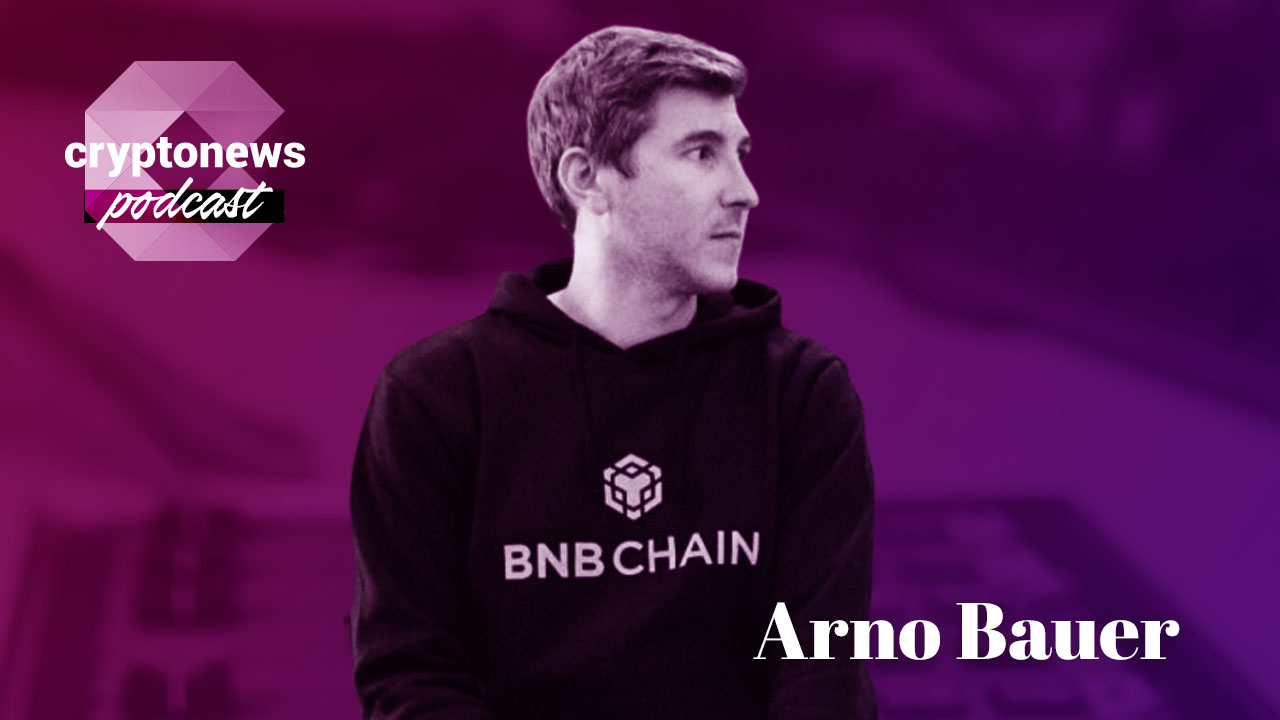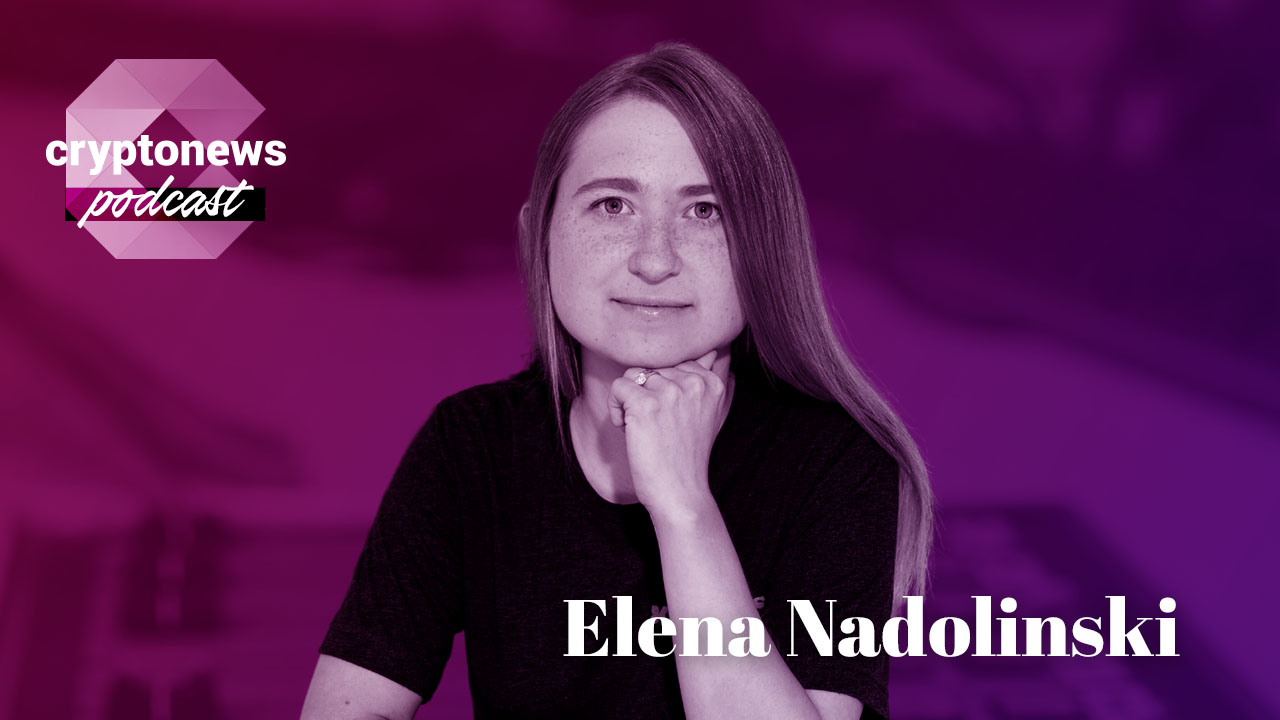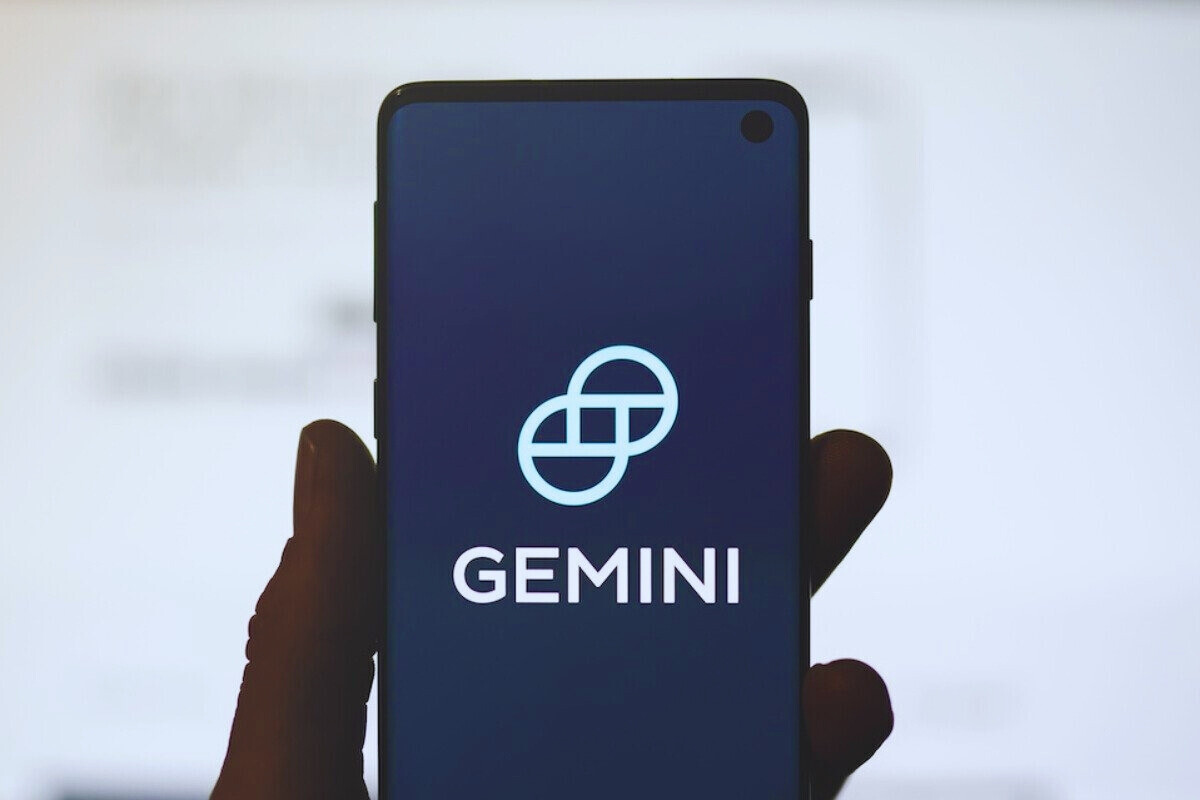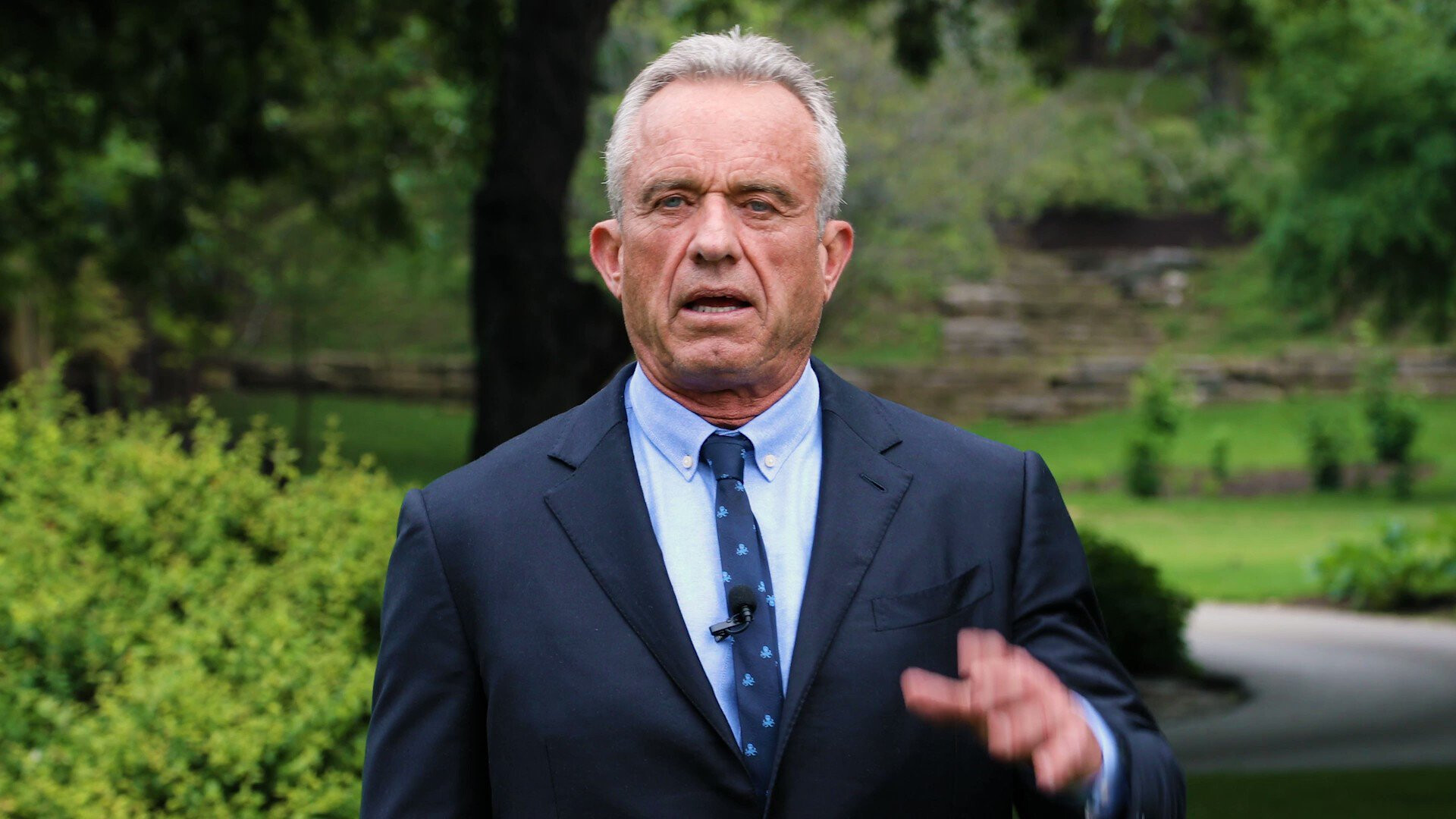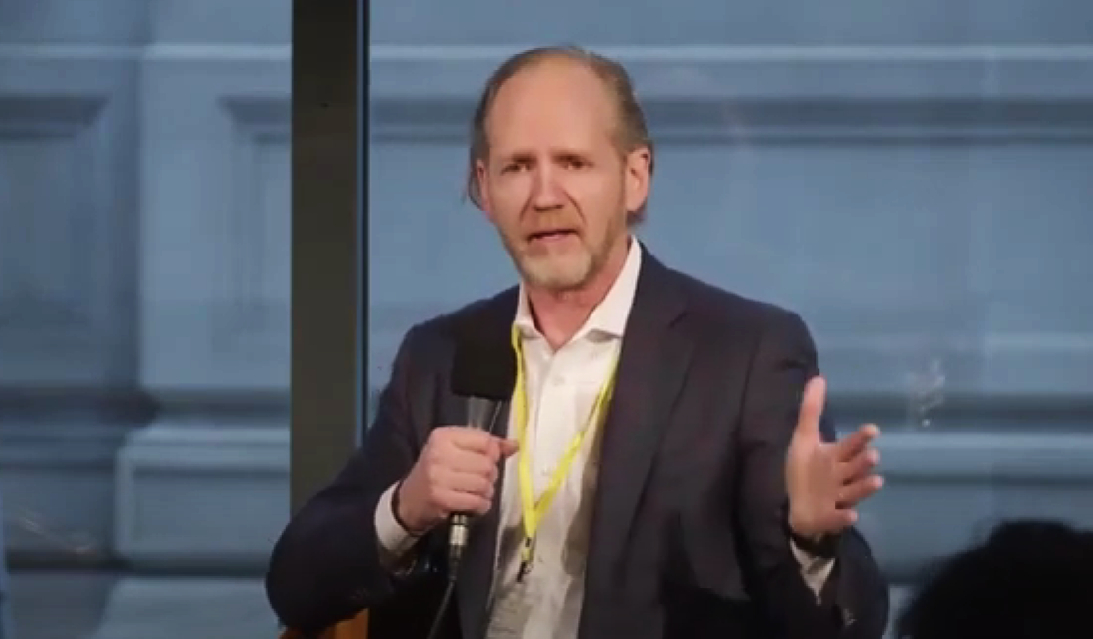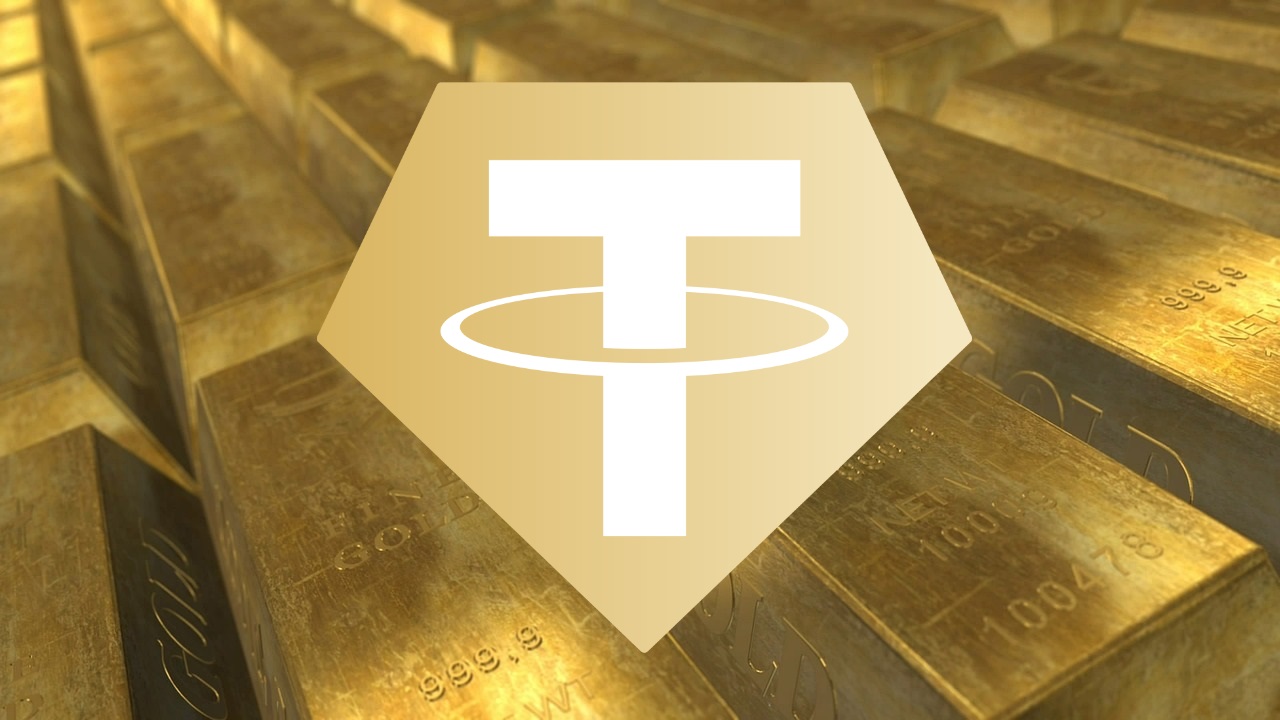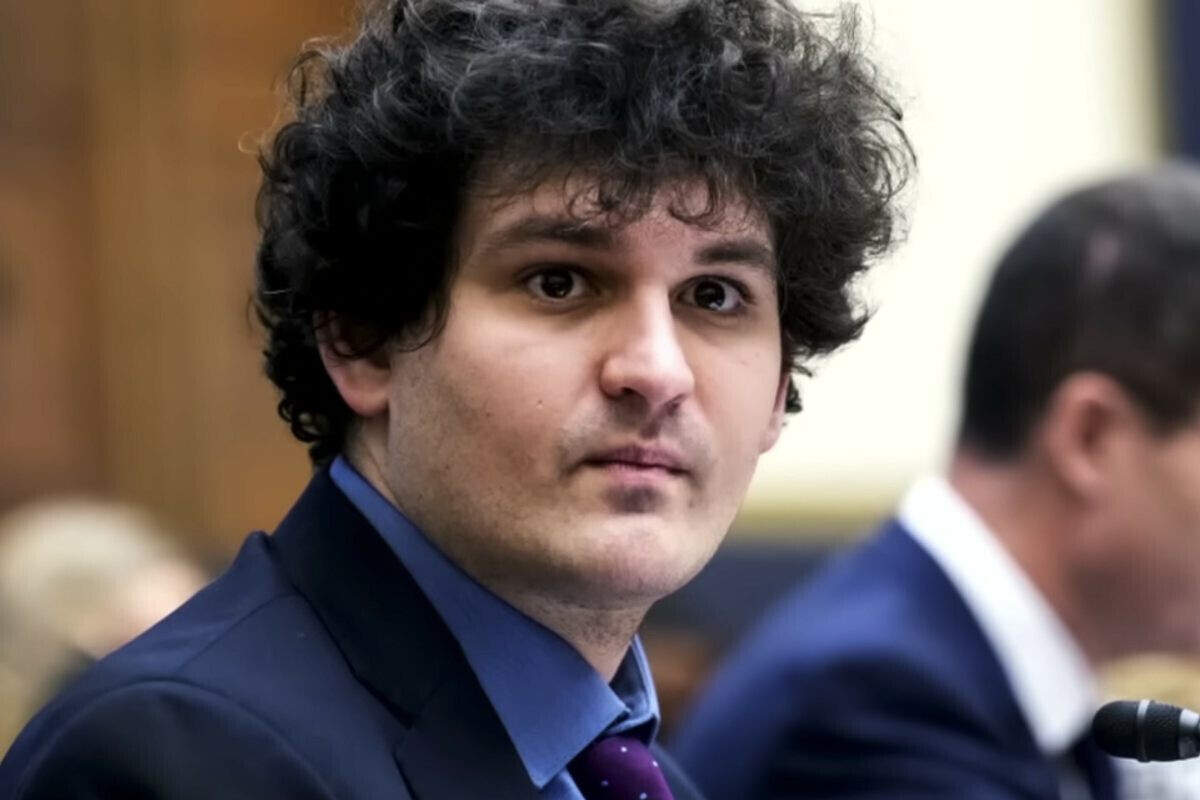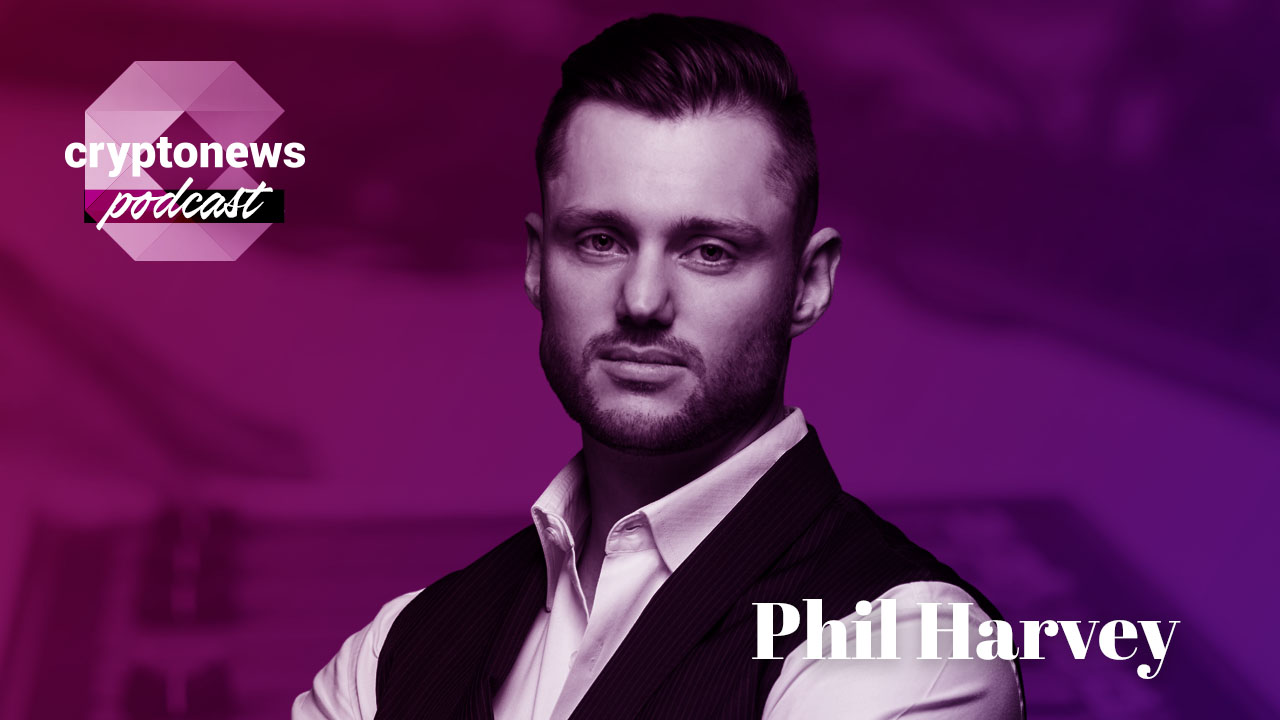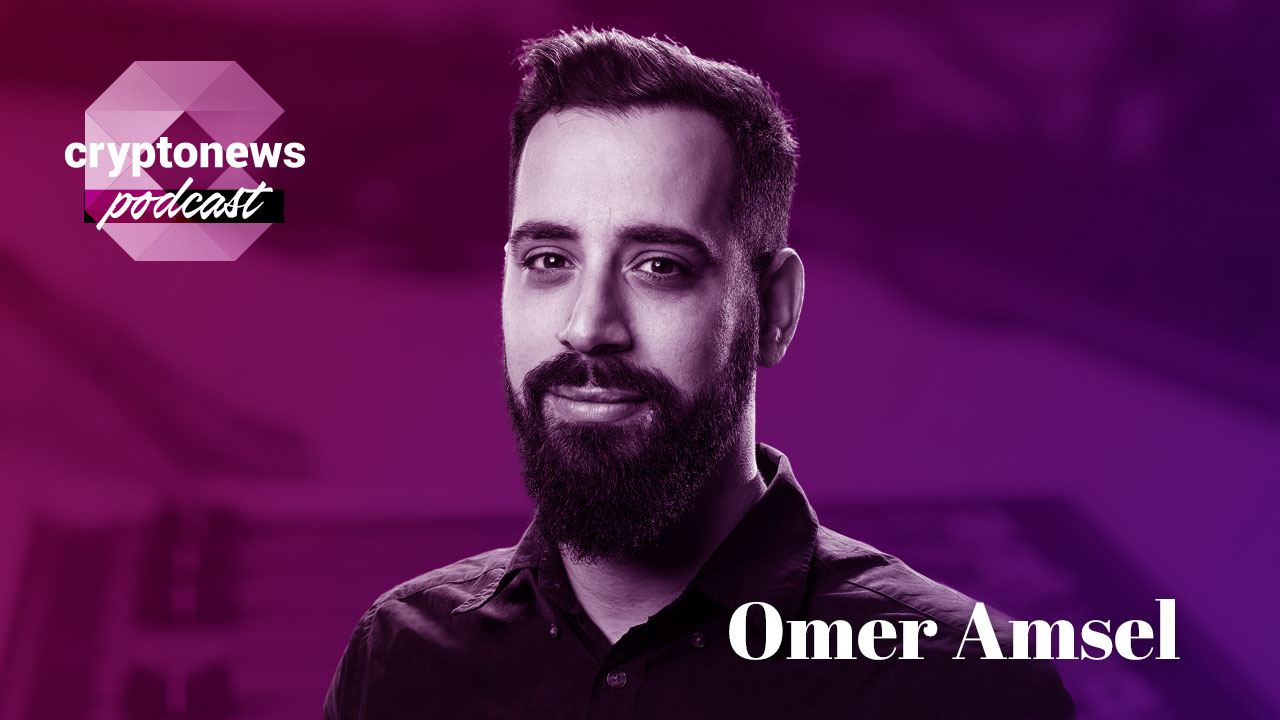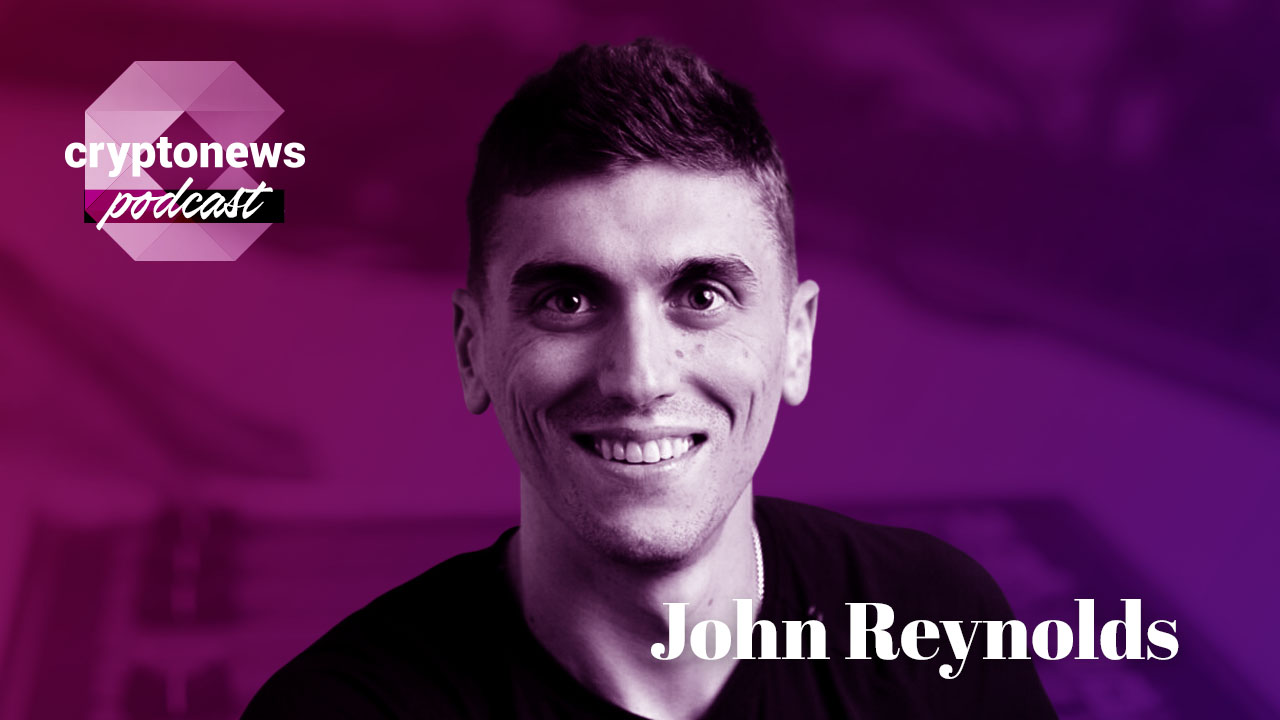Toby Rush, CEO of Deem, on The Future of Web3 Mobile, NFT Ticketing & Sports, and the Power of Open Ecosystems | Ep. 272
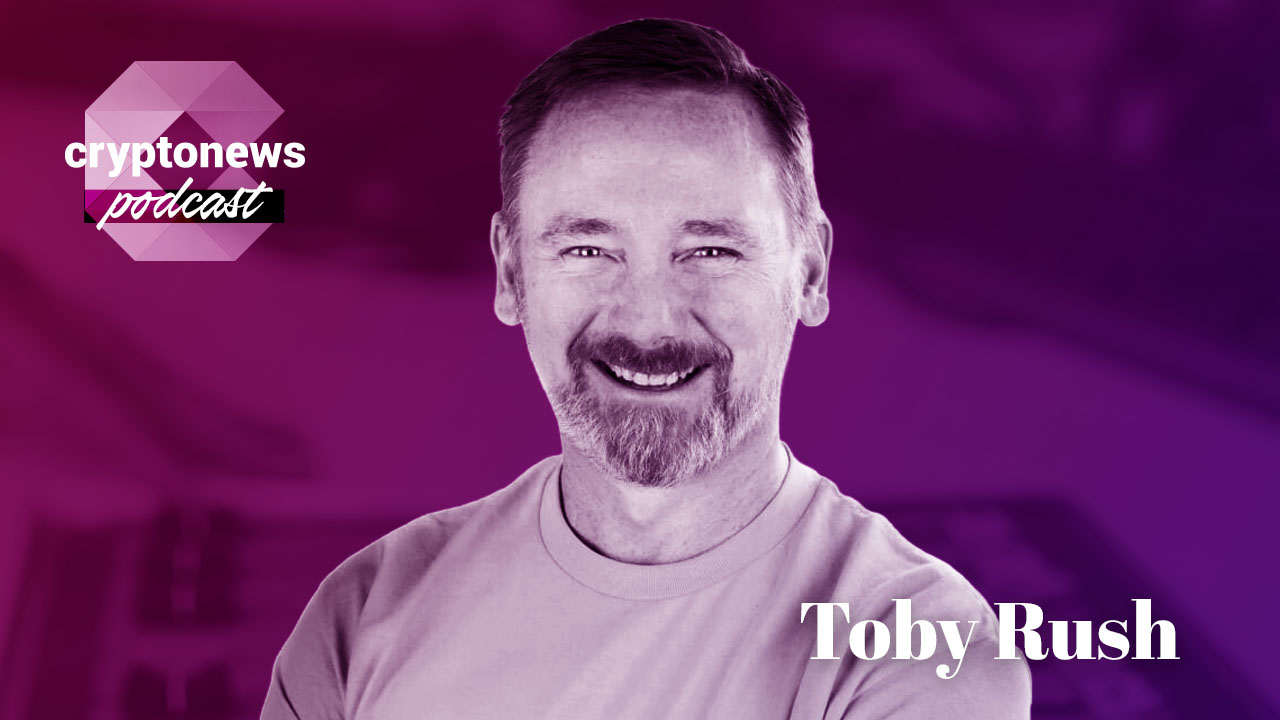
In an exclusive interview with cryptonews.com, Toby Rush, CEO & Co-Founder of Deem, talks about the future of Web3 mobile, the power of open ecosystems, and NFTs + sports.
About Toby Rush
Toby Rush, CEO & Co-Founder of Deem, is a twenty-year industry veteran with extensive deep tech experience as both a founder and an investor.
Previously, Toby led the International Technology Investments Team for Ant Group, the payments subsidiary of Chinese tech giant Alibaba Group. Prior to that, he was CEO of ZOLOZ, an Alibaba digital identity platform. ZOLOZ evolved from EyeVerify, which Rush founded in 2012 and which became a wholly-owned subsidiary of Ant Group in 2016 after creating novel eye-based biometrics used by Wells Fargo, RSA, and Citi. [EyeVerify was acquired](https://fortune.com/2016/09/13/alibaba-buys-eye-scan-firm-eyeverify/) by an affiliate of Chinese tech conglomerate Alibaba for $100 million in 2016.
He also co-founded and led Rush Tracking Systems, a computer vision and RFID solutions venture, to a successful exit to a Private Equity firm. Toby has a BS in Engineering from Kansas State University and lives in Kansas City, Kansas.
Toby Rush gave a wide-ranging exclusive interview, which you can see below, and we are happy for you to use it for publication, provided there is a credit to www.cryptonews.com.
Highlights Of The Interview
- The future of Web3 Mobile
- Mobile as the key to NFT storage and security
- Mobile and its ongoing impact on payments
- NFT Ticketing & Sports
- The power of open ecosystems



Full Transcript Of The Interview
Matt Zahab
Ladies and gentlemen, welcome back to the Cryptonews Podcast. It's your host, Matt Zahab. We are buzzing as always, and I am super pumped to have today's guest on the show, the one and only Toby Rush, CEO and Co-Founder of Deem. Toby is a 20-year industry vet with extensive deep tech experience as both a founder and investor. Before getting into all of the fun crypto stuff, Toby led international technology investments team for Ant Group, the payments subsidiary of Chinese tech giant Alibaba Group, ever heard of them. Prior to that, he was the CEO of ZOLOZ, an Alibaba digital identity platform. And also did EyeVerify, which was acquired by an affiliate of Chinese tech conglomerate Alibaba for 100 mil in 2016. Holy shit, that is crazy. Toby also Co-Founded Rush Tracking Systems. I love that through a little last name in there. A computer vision and RFID solutions venture to a successful exit to a private equity firm. Toby also has a BS in Engineering from Kansas State University and lives in the one and only Kansas City, Kansas Go Chiefs. We love to see it. Toby, welcome to the show. My friend, pumped to have you on. How you doing?
Toby Rush
Awesome Matt, excited to be here. Thanks for having me.
Matt Zahab
I think we got to start with the elephant in the room here. Your background is so fricking sweet. For the listeners at home who are most likely in your car or on a walk or doing chores or whatever, what most people do on a podcast, do tune into the video version. You guys have to see Toby's background. Toby, what is going on there? It literally looks like a fake background.
Toby Rush
Yeah, it has been very blessed. Yeah, so I was a starving artist, entrepreneur for a time. And the home office was the spare bedroom. It was the basement. It was the van. Look, literally the bathroom. It's like, where have you can find a quiet spot in the house? And my last exit, we did well financially. I was like, hey, let's go build a house. This is back in 2017. And they were like, dude, I'm gonna build a house. I'd like to have at least a decent home office. Well, come 2020 and COVID, all of a sudden everybody's working from home. So when I built my office, I had no idea anybody would ever be seeing it on Zoom. Every day or things like this. Like these were always done at the office, right? So yeah, so ended up being really sweet. I love my office. I spent a ton of time here. I'm huge into woodworking. So I got a lot of my pieces around the office as well. And it feels like home.
Matt Zahab
It's pretty crazy how much of a flex a good office background is or just Zoom or Google Meet or Teams background is nowadays. Like everyone gets judged on it. And it's not one of those like good or bad judging. I feel like it's only good if you have a shitty background. It's like, I mean, they're just working good for them. But if you have a sick background, it's like, man, this slaps. Like this is it. It's crazy how times have changed. I love that though. It's too good. Let's jump right into it here. You have, I mean, that's a bananas bio, quite the bio, tons of acquisitions, investments, big groups working with Alibaba. Before we get into the crypto stuff in present day at Deem, which huge shout out to you and the team. Obviously you guys had the raise earlier this year and the recent rebrand from Redeem to Deem. But again, Redeem is now gonzo. It is just Deem. So we'll be sticking to that. But before you go into that, give me the quick sort of two minute elevator pitch. The TLDR, your childhood, you know, how did you get into bed with Chinese tech giants like Alibaba? All the tech you've worked on, you know, the ins and outs of getting companies acquired, walk me through that whole spiel, then we'll get into the star of the show, the crypto stuff.
Toby Rush
No, it's actually, it really leads into just the framing of the world for me, how I understand the world. So this is actually very helpful, even as kind of what we're doing here at Deem. So I grew up in the most entrepreneurial environment you could ever hope for, and it's called the family farm. Like so I grew up in a kind of a farm in the Northeast of Kansas. And my dad was a CEO and the CFO and the COO, and he literally ran a business every day. And so they just kind of grew up and allowance wasn't a word that my family used. And so if you wanted any sideline, you better go figure out a hustle. And so I was always hustling, I always had little side businesses and companies growing up. And so that just really stuck with me. Very technical, engineering early days. Got into doing my own startups 20 years ago. So we put, and all three of my companies, you'll see a theme of about using advanced technology, but all around simplicity, convenience, taking steps out of the equation, letting convenience and intuitiveness. My first company, we ended up putting cameras and technology on forklifts and warehouses. Because what I realized was that forklift drivers really want to be race car drivers. They don't want to drive like bats out of hell, but they always have to slow down to barcode scan everything. And I'm like, I bet we could put cameras on the truck and eliminate all that barcode scanning, which we did. So we put a camera in the front of the truck to automate the pallet pickup and put down. And then we put a camera on the top of the truck. So what we realized is an unobstructed view to the ceiling, and I could put 2D barcodes in the ceiling, and it was like my own indoor GPS system. Right? And so we basically tracked all of the automated, all of the data collection that the warehouse operator needed, and literally forklift drivers could drive as fast as they wanted. And everybody was happy. So that went to a private equity, kind of computer vision was the link to the next company. And this was back in 2011, came across a professor, and he was doing an eye-based biometric but using just regular cameras. So most biometrics take special hardware, they're pretty expensive. Back in the day, biometrics were really the only military airports and immigration. And I came across this professor, and I'm like, whoa, that's fascinating, you can do that with pure software. Hey, we should look at doing passwords on smartphones and use these literally new selfie cameras at the time on these smartphones. And everybody was like, why would anybody do passwords and biometrics on smartphones, like no one's doing that. And I'm like, I don't know, man, if I could just look at my phone, the convenience and the simplicity and the intuitive nature of being able to look at my phone, and that logged me in, I could do painting.
Matt Zahab
Sorry to interrupt, what year was this?
Toby Rush
This was 2011. So to put it in context, Apple came out with Touch ID in 2013 and Apple Pay in 2014. Right? So we were, got lucky, right place, right time.
Matt Zahab
Sorry, last thing on this, and my apologies for being a brutal interrupter here. What was the catalyst? What was the aha light bulb moment that was like, holy shit, why aren't we doing this? Was there a specific time and place or was just like, many times where you thought, oh, this would be a much more efficient and simplistic way? Like you started the show with, you're big on simplifying and efficiencyizing technology.
Toby Rush
Yeah, I think there was always this inherent if I could just use sensors that are already present and fully deployed and build on top of that, right? So I didn't have to sell hardware. I didn't have to encourage people to upgrade phones. I didn't have to worry about, do I have cellular connectivity? I didn't have to, like all these things were built in. So how do you then kind of leverage, widely deployed, adopt that accepted platforms and then build kind of incremental benefits on top of that kind of for that consumers? That just felt like, like this should happen. We got lucky, totally lucky, and that Apple came out with Touch ID a year and a half after we launched the company, right? And that consumerized it and made it normal. So now biometrics on smartphones are like, of course people would do biometrics on smartphones. Of course that makes sense. And then Apple pay and kind of Touch ID, kind of being able to go into banking, that was the big unlock. Because otherwise, oh yeah, biometrics on phones cool, biometrics on phones used for payments and for banking and movement of money, brilliant. And that's kind of what kind of, again, so much of entrepreneurship is, right place, right time, and we got lucky. Again, we had 60 banks in production, kind of using kind of our tech and platform and then mobile apps. AliPay was one of our customers that we were working with. They said, hey, this is fascinating. We wanna bring this in-house and really scale it globally. And so when I joined Ant Group, which think of it as kind of a PayPal and a Geico and a bank all together, right? That's kind of what Ant Group is. It's like, hey, we could really solve the identity problems for so many of the people you're bringing onto your platform. And I think China, India, Indonesia, Southeast Asia, who really have, they don't have computers, they don't understand tech, but if they always have their phone, and if we could biometric and verify them into their payment wallet, we could serve kind of all their buy and match your identity needs. And so that's kind of the charge. And so my charge when I joined Ant, and kind of working with executives there, like the goal is two billion users. Two billion users, that's a lot of users.
Matt Zahab
A quarter of the population.
Toby Rush
But what's crazy when you take just China, India and Indonesia, that's half the world's population. And just those three countries. It's a crazy volume. Anyways, we had a blast loved it. They asked me to join their investments team with a specific focus on blockchain. But in China, there is no cryptocurrencies and there are no crypto punks. Like there are no speculative NFTs. And so my always the focus is about, hey, how does blockchain make things better, faster, stronger, cheaper, more intuitive? How do we use Cortech, not as a speculative asset, but really as Cortechs? That was kind of what I was with kind of Ant and Alibaba. But a year and a half ago, again, still very much in the kind of the Web3 in blockchain world, as it began to look at the market and really understood it more deeply, became a huge believer in this idea of open ecosystems. Right? And so in fact, I usually open ecosystems more than decentralization could be like, wait, what is decentralization in like their heads? Like don't get it. But when you say, you know, there are five tech companies, at least in the US, that absolutely dominate everything and they make all the rules. You got Meta, Google, Apple, Microsoft and Amazon. But they make 90% of the rules, if not more. And they're only gonna make rules that benefit them. But if you can have data that could live in open ecosystems, you get innovation, you get creativity, you get thousands and thousands of companies and startups that are able to innovate and create on these open data that aren't confined by the walled gardens of the big tech companies. And so that idea is always fascinating. It's whether that's ticketing or titles or policies or credentials or certificates or there's so many things that effectively you could put online, let live in an open ecosystem. But then the question, how do you trust it? Like how do you know this is real? Like who are you from? Because I can't go to Apple and say, hey, does Matt really own ABC123? Because we all know the number, who owns it? That's exactly what NFTs are. And those NFTs go into wallets. Yeah, so digital ownership, I think is there such a massive unlock that I think somewhat unfortunately, the two use cases that got out of the gate first were just buying and selling cryptocurrencies, which is a use case on blockchain. And then buying and selling of digital collectibles as NFTs. And those are great use cases, but there are so many more. And those two so dominated the market, and everybody hears blockchain and they think, oh yeah, those Ponzi schemes. I'm like, no, they're not Ponzi schemes and no all cryptocurrencies aren't bad. And so there's a lot of education we have to kind of help the market understand. And frankly, we just stopped selling technology. We just start selling use cases and benefits.
Matt Zahab
Well said, very well said there. I mean, that's always as a marketer, that's one of the first things you always learn. And I always tell the story of going back to when I, you know, helped scale a startup from 100K to 50 mil, that was Hush Blankets, we saw way to blankets. And then, you know, eventually got into the whole bedding vertical. And when you sell someone on 500 dread count, 25 pounds, XYZ, which are all the features, they don't give a shit. But when you go, it's gonna make you fall asleep quicker, stay asleep longer and wake up more refreshed. I mean, come on, that's sexy, that's in your face. So I love that, you get it. That was a great little spiel. Before we get into Deem, one last question. I'm always curious, I don't know why, I have a lot of weird, you know, curiosities that really don't have a reason. But I mean, c’est la vie, what's it like working for a company like Alibaba or Aligroup? Because you hear about, you know, it's the Chinese Amazon, it's an absolute behemoth. Like, what was it like, any very crazy, like cultural differences, working differences, just differences as a whole. Give me some of the big like, aha moments, where you're like, holy shit, what is real life right now? I'm sure you got some incredible stories.
Toby Rush
So one, I have massive respect for Alibaba and a number of other tech companies. I mean, China gets a bad rap. I mean, clearly there are some bad actors in China. Like they're bad actors in every country. And people assume like the Chinese government is very authoritarian. They do a lot of stuff that, you know, I don't agree with a lot of others don't agree with. And they assume that all Chinese are equivalent to their government. Like the US wouldn't be very happy if we were always represented simply as our government, right? Because our government doesn't do that nice things up. But no, I was super impressed, super innovative, aggressive. Their scale, like it is really hard to impress upon people who don't live in China. How big Alibaba and Tencent are, like they dominate that particular landscape. It was by far the hardest leadership job I've ever had. So I was cool. I was able to be on the top 350 kind of executives across all of Alibaba group. Right? It was pretty cool. I'm getting to hang out with Jack Ma and Josai, you know, and votes for him. I really good to see a lot. And the cultural disconnect is crazy just because the vast majority of Alibaba is of course in China. I'm like, just to give you some really funny examples. So one of the things they really talk about is, hey, you need to work hard. You need to care for your family. Make sure you always have like your family in mind. And so the US interpreted, so I had teams in Beijing, Singapore, San Francisco and Kansas City. Right? So my US team, they would hear that and they're like, oh, I need to care for my family. I need to make sure I'm not working 16 hours a day and care for my family because I've got to have a little bit of a balance here. The Chinese understood that very differently. I got to care for my family. I need to work 17 hours a day because I need to make sure my generation can have a next level up. I need to commit more time. And it was like, again, words and they were totally, and when I realized this, I'm like, holy smokes. Like same words, very different interpretations. And I've got a story. Yeah. Again, good intention, well-meaning people, but whoof. Cultural and language differences.
Matt Zahab
How many trips to China did you take?
Toby Rush
Oh my goodness. I was with them for three or four years. I played probably every six weeks. I was over there, which is a lot. I actually was close to moving to Singapore, kind of at one point, just to make it so easier.
Matt Zahab
Yeah, that's crazy, man. Good God. Let's get into the start of the show. The second start of the show after Toby, which is Deem. Give me the quick TLDR, the quick elevator pitch on Deem, and then we'll get into some of the fun stuff. Things that interest me the most is your take on how the future of Web3 is via mobile, which I absolutely love and completely agree with. We are addicted to our phones all the time. Quick little funny story. I'm actually at my parents' house. Just house sitting right now. My parents are in Switzerland enjoying their lives. Someone's got to look after the crib. So me and my brother take our turns. Nonetheless, my grandma had a problem with her iPad. So she came over, I fixed her iPad. Guess what her screen time was for last week? Zero. She gets the notification. I'm like, I would do bad things to have zero average screen time per day. We are glued to our phones, man. It is bananas. But anyways, walk me through what you and the team are doing at Deem. And then we'll get into some of the NFT ticketing and the future of Web3 mobile.
Toby Rush
Yep, absolutely. So as I began really diving in and understanding Web3, again, as I mentioned before, fascinated by this idea of open ecosystems owning your own data, innovating creativity, composability of what we can do. And as again, folks listening to the show have been in the Web3, it's getting better, but holy smokes, the UX is terrible. And just normal people don't understand, it's a big mental shift. Like we're asking you, not only is it a different mental model, but the way that we onboard into Web3 and then continue to engage with Web3 and all the way this is a wallet, why do I keep signing and why do I have to go out to my wallet and then kind of come back into my app and there's all these things go crazy confusing. And so there's like my thinking of like there's gotta be an easier way just to make the engagement and ongoing transactions in the world of Web3 a lot easier. And then it kind of actually went back a little bit to my days of with EyeVerify and Alibaba and like, why don't we just use our phones? Like how come someone hasn't wrapped a really simple scaffolding and infrastructure around your phone to make it like this connectivity layer into all things digital, right? Because the cool thing about your phone is it has a globally unique number bound very tightly to that phone number through the SIM card. Whereas you have a cryptographic proof that there is one number in the world that can be on this device in my hand right now. That's pretty crazy, right? I'm gonna put the country code in front of it globally. There's only one device and this device also happens to have a biometric scanner. Right? There's actually pretty convenient. I set it up, I use it for a lot of things. They all have browsers, they all have messaging app and now some of the newer things carriers allow you to call kind of an API with, you know, T Mobile Verizon, T Mobile AT&T or Vodafone O2 wherever you're curious. I can call any, there are API and say, hey, is this phone number active on this device right now? And it's the same API they use as a, can this phone access my network? Right? so again, they've spent hundreds of billions of dollars saying, hey, we got to make sure that this phone number on this SIM card can access my network, but now they've opened that up as an API. So what we've done is really turned your phone into what we're calling an OAuth provider, right? So when you log in with Google, Apple, Facebook, what you're doing is you're going to Google, Facebook, Apple, Facebook, say, hey, log this person in and let me know that it's really Matt. And then they'll give the calling app back a token. So yep, we confirmed that this is Matt. We've turned your phone into that. So if you possess your phone, you have your security, you have your password, right? In fact, what's cool about it is we can also tell because with the carrier, we know it's not a virtual phone, right, it's not a Google phone, right? And so you actually get proof of humanity, proof of humanhood, you do a biometric scan, you have proof of ownership with a globally unique digital identity that nobody else can have, right? But you can maintain the privacy because we don't need to give your phone number out. We give OAuth tokens, like we give these, just again, random, not random, they're unique tokens, but it is OAuth framework that all the other applications know and understand. So we've made it simple on two sides. From a user, hey, the story is, if you have your phone, you have your password. You never have to change your password, you never have to worry about it. As long as you have your phone, you can have access to these various digital assets, there would be NFTs, we also do a lot of stuff in payments, it's the same problem with digital payments, how do I know that you're really you? So if you have your phone, you have access. On the backside of that, you also have to make it easy for the app developers, right? Whether you're a pure Web3 dApp or you're in the Web2 world wanting to do token gating, wanting to do other things kind of with NFTs. And so being a really simple OAuth, again, if your app supports login with Google, which every app in the world does, you can log in with your phone. But when you do that, that account is then linked to, you can link a MetaMask or a Rainbow or your Phantom or whatever these other wallets are linked to, but your phone is your link into them.
Matt Zahab
Interesting. That is exactly what you said it is. And that is removing the nonsensical UX and UI that is presenting crypto. Do you remember the first time you got someone to set up a MetaMask that isn't to tech savvy? Like that is just folks, what are we doing here? What are we doing? And then explain to them, hey, there's, you know, we're gonna be 12 to 24 little words. You're gonna have to write down, like don't lose them. Don't let them burn down. If you lose them, they're like, whoa, wait. Crazy. Make sure you don't, you know, take a picture of this. Don't type it in your computer. Make sure you write it down. If your house burns down, make sure it's just like, what are we doing? It's absolutely crazy. Let's talk use cases. You're a big use cases guy. You're a big screw features. Let's talk about benefits and use cases here. You and I are in the same camp. One of the biggest use cases for NFTs. And a lot of firms are working on this. A lot of really incredible people, guys and gals, teams are trying to build an ecosystem for ticketing and sports, which I think will be sort of the first major NFT breakthrough to go mainstream. It's such a no brainer. There's so much utility, so much value, so many use cases. I love if we could jump into this and walk me through sort of the 360 degree view on what's going on in the whole NFT and ticketing sports landscape right now.
Toby Rush
I love the, and really it's kind of IRL with digital, right? So in real life, it's supporting events, it's concerts, it's events because I show up in person, right? And I want to engage in person, but I also have this whole of the digital world and letting those two worlds merge together, I think is crazy powerful, right? So there's clearly, I think folks have looked at, you know, tickets as NFTs, they can't be game, they can't be scalp, they can't be, there's not as much fraud. Sure, those are good. I think the bigger unlock is again, when people have purchased a ticket, and we say it's either to a game, again a sporting game, and in Chiefs we're in Kansas City, everybody loves the Chiefs, you know, any of the sponsors or folks that are engaging with the Chiefs can now say, yep, we know this person went to the game, therefore we want to engage with them on either marketing or some sort of program or some other activity. Entertainers are also really interesting, because again, those entertainers are saying kind of ticketing issue but now those entertainers can engage directly with cost consumers and both sporting events and entertainers can now engage with those people even while not at the stadium. So it used to be very much like, you got a ticket that let you into the stadium, there's a physical event, then you leave the stadium and you kind of done, like that particular engagement is finished, but when you can use NFTs as the bridge, the engagement continues. In fact, the engagement can start before you show up at the event, like you clearly have engagement at the event, then after the event, it's not like the engagement is done, right? So artists and teams can still engage with fans, it's just a much richer experience and you're not blocked by Ticketmaster, right? Because whoever happens to control the venue or the ticketing, and so again, I want to go back to these open ecosystems, innovation and composability, and those live events, again, in particular sports and any kind of a concert or music, I think are crazy powerful and I do believe that they will be one of the first big use cases that go out.
Matt Zahab
Toby and listeners, we have to take a quick break and give a huge shout out to our sponsor to the show PrimeXBT and when we get back, we are going to keep buzzing on mobile and its ongoing impact on payments, of course, NFT ticketing and sports and some good old power of open ecosystems, which Toby is a big believer in. But until then, huge shout out to PrimeXBT, our longtime sponsor of the Cryptonews Pod and longtime friends at the cryptonews.com. PrimeXBT is running an exclusive promotion for listeners of the Cryptonews Podcast. You get 50% of your deposit credited to your trading account that can be used on their robust trading system for both beginners and professional traders. It doesn't matter if you're a rookie or a vet, you can easily design and customize your layouts and widgets to best fit your trading style. Again, the promo code is CRYPTONEWS50. It is only here for listeners of the Cryptonews Pod and that gets you 50% of your deposit credited to your trading accounts on PrimeXBT's robust trading system for both beginners and professional traders. CRYPTONEWS50 to get 50% of your deposit credited to your trading account and now back to the show with Toby. NFT ticketing and sports. A couple more questions then we will wrap up and go to the next topic here. And I hate to be the bearer of bad news or just the antagonist pessimist prick here, but so that will be the cape that I put on. But and this is something that hits hard to me just because I'm such a big sports fan and I do believe that the experience would amplify and would be infinitely better if we did have some really cool, organic ways via NFTs and blockchain to sort of lengthen that whole relationship and partnership of the person and the entity being the sports team. But what is stopping Ticketmaster from coming in and ending the party? Does Ticketmaster not want this to happen? And they have the tech to rule this out themselves. Again, I hate to be this guy, but it's just this is something I often think about.
Toby Rush
You know, Ticketmaster actually has a really savvy internal team that's all Web3 and blockchain. So they are, clearly working on this. I don't have any insider information. So I can speculate. I think Ticketmaster wants to use ticketing as a much broader play into non-ticketing world.
Matt Zahab
So you said the non-ticketing world?
Toby Rush
Yep. So here's where, again, Toby's, I guess, I don't know, it's a crystal ball. We'll call it a murky ball. But you put it fast. They have a, not a front or a seat, like they are the choke points for tickets today and they have like 20 releases on these things. So they're going to be around a long time. And if they can say, hey, we're going to do tickets as NFTs, but you got to use our wallet. But you have to use kind of the Ticketmaster wallet in order to be able to do this. Then Ticketmaster can now go to the sports team, the artist, the fan, all of those. And they continue to be the hub for now, how all those other people want to engage. So you think about, they've typically sold tickets and they're very venue bound. So if they are the wallet and the hub that can now say, I've got a marketing platform, I've got all these other digital consumer engagement platforms, think about it again, they have all these stadiums. They know now a consumer and their wallet has gone to this event and that event and gone these other things. Then they can start building profiles like, oh, now this user has also shopped at this place. So they went to, you know, this restaurant was sponsoring an event for everybody who went to the game last night and Travis Kelce gets four touchdowns. You can come in and get, you know, four burgers for free, whatever the thing is. So some of the cool things you can do with NFTs. Like, I don't know if you saw the crazy hub up this last week of Taylor Swift was at the game to watch Travis Kelce, right? And there was like all the crazy. So imagine, you know, someone would be like a clothing manufacturer like, hey, everyone who had a ticket to that game can come get this special Taylor Swift shirt. You only can get this shirt if you're actually at the game. That's pretty cool, right? Well, if Ticketmaster can be the gateway to say, oh, well now I know they bought this shirt and they've done these other things. It really, it's a viable business strategy for Ticketmaster, right? Now again, are they going to be an honest broker or are they going to simply build a larger walled garden kind of around the referee space? You know, hopefully there will be more open. So I do think Ticketmaster sees the, I'm going to call it the tactical benefit of simply less fraud, better experience at the venue. But that is such a small potato is when you look at the larger scale of what you can do pre-event and post-event. I mean, that's where Ticket and gets to be so fun.
Matt Zahab
Yeah, no, it's a very good take there. One of the topics that we also need to discuss is mobile and its ongoing impact on payments. Even I think of myself, I rarely use a credit card anymore. I mean, I'm using a credit card, but it's on Apple Pay. Like I have my business cards, my personal cards, all on Apple Pay, it is such a treat. And then there's just the obviously payments on mobile. If you're doing some work for me or I'm doing work for you, vice versa, and I need to pay you. I'm just going onto my bank and Apple on my phone and firing away. Like everything is done on mobile right now. You're obviously deep in this space. You have experience in this space. What's your take on the current sort of impact of mobile on payments? And what's that going to look like in the future? Maybe a couple years down the road, 5, 10 years down the road.
Toby Rush
There's actually a lot of parallels to ticketing, right? So old school ticketing, you got a piece of paper and you handed just one at the door, there were clip-overs, tear it or whatever and then you went into the stadium and that was the experience. Well, when we went from paper to credit cards, this is 40 years ago, by the way, credit cards were a pretty amazing piece of thing. I got a physical card, I can go up and tap at a terminal, swipe a terminal. Again, 40 years ago, we didn't get iPhones until what, 2007, 15 years ago. And so the advancements that we've had with mobile, I mean, the best we've done is simply digitized this old school card, these old school rails into a phone, which that's better, but Holy smokes, we're still beholden to all the rails and all the fees. Like we value money every time, every time you send a transfer, you're gonna pay 2% or 3% so you're losing 2% or 3% and there are like seven or eight layers of people taking little bits out of that 2% or 3% and so everybody's on the take. Everybody wants to be the one who gets a little piece of these fees that are being charged with credit cards, including Apple, right? They wanna be the front like half use Apple Pay and then your credit, right? So my argument, we're still being hemmed in by too many rules set by the incumbents, which are always going to favor the incumbents. Like that is the nature of business. So the thing I love about just Web3 and more open ecosystems of like, how do we unlock creative potential and alternatives and better in different ways of doing things? Like payments are one of those. And so if I've looked at, it's funny, when we first did Deem, it was in vector, when we did Redeem, it was very much Web3 focused. As I've really began to look at the space, the reason we rebranded to Deem is realizing like, Holy smokes, we have the same problem in payments as much of the stuff we've done in ticketing or with Web3. And so if we can help basically solve both problems at once, because the whole idea of like, if I have my phone, I've got a super secure yet very simple way to prove that it's me. And one of the reasons they justify higher fees and digital payments is fraud. Like, well, we don't know if it's really you. How, what if someone just got your credit? What if someone went, and so they charge you a lot of money and my argument is like, if I can tell you with, again, 100% confidence that this phone number, global unique on this phone that it biometrically verified into, that's not a fraudster. Like there's zero reason why you should take any discount for fraud, because this transaction cannot be fraudulent, right? But there aren't good frameworks yet to work with that. So true. Yeah, so we're currently, there's a multi-pronged approach. So we're, actually we are working with some of the big card companies right now, because they're recognizing this. Hey, we can't keep charging these really high. They call it card not present. So when your physical card is not present, we're 30 years ago, that was much higher risk. Like, wait, well, where did that card come from? Someone's just typing in numbers onto their computer. Granted, that's higher risk. And so they've got programs rolling out that if you do things like SIM card binding and biometrics, you're gonna be able to get better rates, which makes a ton of sense. And so we'll work with those where we can, but also going directly account to account, right? So why don't I simply pay directly from my bank account? So I'm beginning a lot of my time over in China, credit cards aren't a thing, right? People don't get credit cards, right? They don't even have banks. So it's all mobile app, think PayPal. They're all PayPal-ish. That's what Alipay is.
Matt Zahab
These are these super apps though, right? Toby where it's like chat, like WeChat where you have like your bank account, you're shopping, you're messaging, like you got it all in one, right?
Toby Rush
Yeah, and going to account to account, right? So it's going from your WeChat account directly to your bank account. You're paying this bill directly with your bank account, right? So you're not writing the traditional card rails. You're going to get, it's called account to account, right? The US has been pretty far behind. Historically we've had something called ACH, right? So ACH was selling a couple of days. Well, they've got newer frameworks, generally called RTP, real time payment networks. So FedNow just rolled out a month ago, two months ago. And it settles instantly 24/7 for four pennies, right? So just the delta, there'll be fees based on top of that. So I'm not saying it'll always be four pennies. There'll still be a few fees on top of that. But the benefit and the expense to merchants, like that's a full 1%, 2%, straight to your bottom line. That is very significant. But here's the catch. And this has Web3 parallels as well. You don't have Visa in the background, traditionally saying, hey, someone told my card, or I didn't make that purchase. Visa put a stop on it. But to that, that's what Visa will do. Like if you don't like the charge or whatever reason you, it's called charge back, you can go to Visa and say, put a hold on that charge. Right? Well, if you're going bank account to bank account, you don't have that protection.
Matt Zahab
Same as crypto once you send the money it's gone to the abyss baby
Toby Rush
It is far more efficient, but it's a little bit riskier. And in particular around fraud, like how do you know someone didn't, you know, think of all the account takeovers, right? How many passwords do you have and how many people have gotten into your account? Well, if someone can get into your account and just start buying stuff, okay, that's a little scary. Like how do I know it's through a person? How do I know, you know, someone just didn't go find my data on the dark web and do an account takeover and log in, right? So what we're trying to do is like, hey, we can stop that cold, right? So we can actually make sure that kind of your account linked to this bank account is the only one that can issue any kind of payment, whether that's writing the traditional card rails or is going direct account to account. But really, again, it's a very similar, you might say ethos, themes, thesis, as is for Web3. How do I know that I own this wallet and approve this particular transaction? Whether I'm token gating or kind of making transactions in the Web3 world, I can't simply go back and rely on Apple, Google, Microsoft, Facebook to authenticate. But so it's a similar to both spaces,
Matt Zahab
Very well said. Toby, we are getting a little tight for time here. Last topic and then unfortunately we have to wrap up, but I do need to have the on for round two because this is too much fun and we barely scratched the surface. But let's get into sort of the power of open ecosystems and token gating activity. Token gating activity, huge. Again, like you said, something as simple as being at the Taylor Swift KC game where you guys, I believe, was the Bears that you absolutely trounced with Taylor Swift and absolutely crushed the Bears, which I'm sure you guys absolutely loved. I mean, the Bears are trash. So I wouldn't look into it too much, but either way, you guys do look scary and good as always. Walk me through the power of open ecosystems and token gating activity, more specifically, token gating activity and how it really has a shitload of use cases present day and moving forward.
Toby Rush
I mean, I ain't token gating people this. When I talk to folks, I am saddened by the lack of vision. There's so many, like a key to your car could be a token. Right? Like a key to your house, a gem, a marriage certificate, an academic certification. I mean, so all those things, you can have cryptographic proof. Oh, this, Matt has done these things. Therefore, I will give them either a certain level of trust or give them access to other things because of this cryptographic proof of data. So token gating isn't just, I wanna go to a website so I can buy some piece of merchandise because I have some thing in my, yeah, that's fine. That's a use case, that's real. I think much bigger around, so many things that we do in life are so hard to go back and prove. How do I know that, again, I was there, I did this thing, or I worked for this company, or I actually went to the school. Holy smokes, this is a blew my mind. We were interviewing first and folks, this was probably six or eight months ago, and we put it out on LinkedIn. And my COO had like three or four people he talked to, and as he dove in, he's like, man, this doesn't feel right. So he starts asking really specific questions about their resume, and they hung up. There were total scams. People just trying to say, oh yeah, I went to this school and I did this thing and I worked for this company, but if it's on LinkedIn, you can put anything you want. The ballziness and what they would do, the scam is they'll work for two or three months, do a minimum amount of work, and then just leave.
Matt Zahab
Go to the next company. That's greasy.
Toby Rush
So again, kind of back to trust, opening systems in the digital world. I mean, I think token gating has so many, powerful use cases that is much beyond just getting to some data on a website.
Matt Zahab
Yeah, well said. Toby, what an absolute treat. Pleasure meeting you, pleasure spending the time with you, an open invite on for round two. It's gotta happen, we barely scratched the surface and we'll do a nice sports pod as well. But before we let you go, can you please let our listeners know where they can find you personally and Deem online and on socials?
Toby Rush
Yep, I'm @TobiasRush on actually everything Twitter, LinkedIn, Telegram, I've been fortunate. So Tobias Rush and all those places use deem.com. Come check it out. You got a pretty sweet demo. You can kind of see how we bind your SIM card to your phone, your biometric to you, and then wrap that in a really simple OAuth. We'd love to talk to you. Come reach out.
Matt Zahab
Toby, unreal episode, thanks again, and we'll keep in touch. Can't wait for round two.
Toby Rush
Awesome, thanks, Matt.
Matt Zahab
Folks, what an episode with Toby Rush, CEO and Co-Founder of Deem. What an Episode. I definitely have some homework to do. Anything, Web3 Mobile, NFT ticketing and sports, open ecosystem, token gating, future of Web3. You name it, we talked about it. Huge shout out to Toby and the team for making this happen. If you guys enjoyed this one and I hope you did, please do subscribe. It would mean the world to my team and I, speaking to the team. Love you guys, thank you so much for everything. Justas, my amazing sound editor. You're the GOAT and you know it. Love you and back to listeners. Love you guys, thank you so much for everything. Keep growing those bags and keep on staying healthy, wealthy and happy. Bye for now and we'll talk soon.

